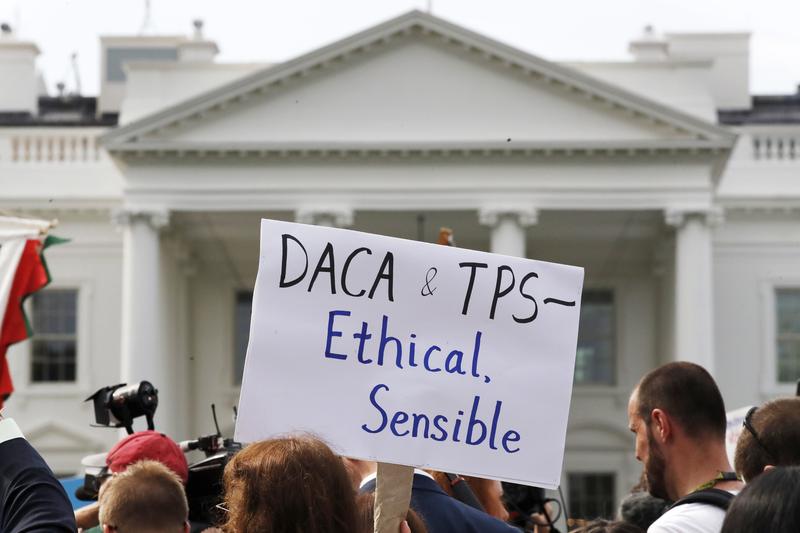
As many as 300,000 immigrants in the U.S. are bracing for the possible end of Temporary Protected Status, a federal program that keeps them here legally.
TPS is granted to nationals of certain countries that have been hit by natural disasters or political turmoil. Although it's ostensibly temporary, TPS can be renewed, over and over again, to the dismay of some conservatives who want to limit immigration.
A TPS recipient can live here for 15 or 20 years, raising a family, buying a home, and paying taxes.
Nicole Svajlenka, a senior policy analyst with the left-leaning Center for American Progress, co-authored a report examining the impact on the U.S. economy if the bulk of TPS recipients, from El Salvador, Honduras and Haiti, were to suddenly lose their legal status.
"In our study, we found that the country stands to lose $164 billion from the GDP over the next decade if TPS expires," said Svajlenka.
That includes nearly $2.5 billion in annual GDP for New York and New Jersey.
Although New York City hasn't measured the local economic impact, Suffolk County has, because it's worried about the economic fallout of TPS expiring. An estimated 11,534 TPS recipients live in Suffolk. Theresa Ward, the county's Commissioner of Economic Development and Planning, said that includes thousands of homeowners and people with mortgages.
"That could be a significant amount of loans that could go unpaid and contribute to zombie homes,” said Ward.
Earlier this week, the four U.S. Senators from New York and New Jersey sent a letter to Acting Homeland Security Secretary Elaine Duke and Secretary of State Rex Tillerson demanding the renewal of TPS, for Haiti in particular. The letter noted that 5,200 Haitians who are TPS recipients live in New York State, and approximately 3,400 in New Jersey.
"Haitians with TPS are employed in nursing homes and as home health aides, filling a critical gap in chronically understaffed healthcare fields. There would be a profound impact on the country as a whole if essential workers were removed from their jobs," the letter stated.
If the Trump administration lets TPS expire, recipients would either be deported or remain in the U.S. illegally.
The Department of Homeland Security said it's currently evaluating the conditions in individual countries to determine whether to extend TPS. A decision is expected on Monday for Nicaragua and Honduras, and for Haiti on Nov. 23.
